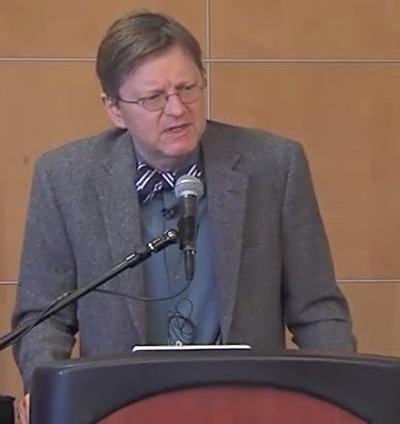NUMBER TWO
I've been somewhat disturbed with a claim made by Louis Seidman in his new book, and also by Sandy Levinson: the Constitution is now too old.
I wrote to prof. Seidman and told him that this premise could only be true if one were an originalist. In the 1980s, we didn't see the document as being too old for us, largely because Ronald Dworkin was king of the hill. So it is not our age which matters at all; this is merely a picture of account that is being forced on us. You see, if the sentences in the document are taken as being inherently flexible -- as I argue -- then one could never see the document as being too old. You'd need to adopt an originalist view of the Constitution to even think that.
And that brings me to my second question. To what extent do liberal law professors LIKE originalism because it allows the Constitution to be painted as an outdated heap of scrap? Conservatives tend to want you to be obedient to history because they want to sanctify events in the American past in some way (idolatry). Liberal professors, by contrast, rightly know that sanctification is a political loser in the long run and intellectually suspect as well. So, they let conservatives come to paint the document as an ancient (venerable) thing, only to know that, later on, it will more accurately be seen as an outdated train wreck. Getting people to see the Constitution as old will be its ultimate downfall in the culture.
In other words, if conservatives killed off the living Constitution, they will end up laying the seeds that kill off the actual Constitution, because they allowed it to become socially perceived as being old. Will that be what our history books write 100 years from now?
I hope people will come to see the truth: that both originalists AND Seidman are as wrong as they can be. That both are equally suspect. That both represent the same sort of thing in the academy -- intellectual impulses that are fundamentally harmful to what the Constitution really is: an inherently flexible, perpetual charter, capable of being followed in many different ways, with each way being no more less of a following than the next.
Seidman's attitude only works if originalists win.
